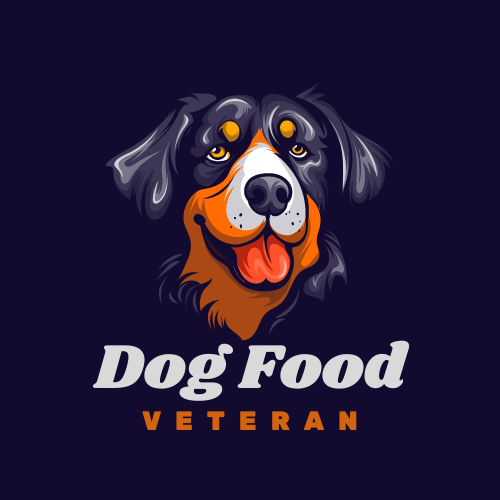I can think of a lot of things that will be good breakfast options for your pets. Let’s take a look at some of them:

Commercial Dog Food
This is a specially formulated dry or wet dog food. What makes it an appealing breakfast option is the complete nutrition it gives your pets. You just have to follow the feeding guidelines on the package to ensure they get the right amount of protein, fat, vitamins, and minerals they need to start the day.
Homemade Dog Food
This is a great alternative to commercial dog food and with your vet’s guiding hand, you can prepare nutritious homemade meals for your dog. To ensure the meals are balanced, I highly recommend consulting your vet on recipes and the proportions of ingredients to add. Homemade meals may include lean proteins, whole grains, vegetables, eggs, and healthy oils.
Human Food in Moderation
Just like humans, dogs are also omnivores. This means you can feed them some human foods as treats. However, they should be in small amounts. If you’re considering this option, take a look at these meals:
- Eggs – Whether you like them scrambled, hard-boiled, or as omelets, eggs are always healthy options for your pets. If you’ve got a large dog, one egg 2-3 times a week is ideal and, please, never feed your pets raw eggs.
- Yogurt – Plain, unsweetened yogurt is rich in probiotics and protein, making them a good treat for your pups. You can either give them low-fat or non-fat Yogurt and the amount should be a spoonful or two.
- Fruits/Veggies – If you want to feed your dog a vitamin-rich food, I recommend bananas, strawberries, blueberries, carrots, apples, and green beans. Just give them a few bites and limit their consumption of sugary fruits. Also, avoid feeding them grapes, raisins, onions, and garlic.
- Oatmeal – If you want a human food that’s rich in fiber, Cooked oatmeal is the way to go. I recommend that you choose plain oats and limit sugar or flavor add-ins. Lastly, only give a spoonful or two for small dogs.
What Should Dogs Avoid Eating for Breakfast?
While some human foods make delicious and healthy treats for your dog, others can be toxic and harmful to their health and they include:
Toxic Foods
- Chocolate – This food contains theobromine, caffeine, and fat which are extremely toxic substances for dogs. Even minimal amounts in their system can cause vomiting, increased heart rate, seizures, and even death.
- Grapes and Raisins – These foods can cause kidney failure in your dogs. Although the exact toxin is still unknown, researchers are pointing accusing fingers at mycotoxin, Salicylate, and tartaric acid.
- Onions and Garlic – These bulbs can damage your dogs’ red blood cells, causing them to be anemic.
Dairy Products
- Milk – Many dogs are lactose intolerant or allergic and this makes them unable to properly digest milk, causing diarrhea or vomiting.
Fatty/Sugary Foods
- Bacon & Sausage – These meats are high in fat and sodium, leading to stomach-related issues, obesity, and pancreatitis in your dogs.
- Sugary Cereal & Syrup – Too much sugar in your dogs can cause obesity, diabetes, dental issues, diarrhea, and digestive upset.
Bones
- Although you see it on TV shows or cartoons and may perceive it as normal, feeding your dog bones is actually dangerous because they may splinter and cause injuries, obstructions, or digestive tract perforations.
Tips for Serving Breakfast to Your Dog
If you want to serve your pets breakfast without harming them, here are some tips that can help with that:
- Stick to a routine – Serve breakfast around the same time every morning so your dog’s digestion gets accustomed to it.
- Use proper dog dishes – I recommend stainless steel, ceramic, or plastic dishes for pets. This is because they’re designed to prevent tipping and make it easy for you to monitor your dog’s food intake.
- Smaller and more frequent meals – If your dogs are young puppies or mature, small breeds, I recommend feeding them smaller meals multiple times a day – say every 3 or 4 hours. This helps with easy digestion and more importantly, prevents gorging.
- Get rid of leftovers – After your dog finishes eating, pick up any leftover wet food after 15-20 minutes or it will spoil at room temperature and make your dogs sick if they eat it later.
- Provide plenty of fresh water – Ensure your dog has constant access to a bowl of clean, cool drinking water to stay hydrated during the day.
- Give treats sparingly – Human food treats should not make up more than 10% of your dog’s daily calorie intake.
- Seek a vet’s guidance – Consult your veterinarian about any dietary concerns, allergies, or intolerances your dog may have to determine the appropriate foods and serving recommendations customized for it.
Additional Considerations
Here are some more tips to consider when feeding your dog breakfast:
- Leftovers: Feeding your dog leftovers may seem convenient but, over time, it could unbalance your dog’s diet because some human foods are very fatty or seasoned. I advise that leftovers shouldn’t be more than 10% of your dog’s daily food intake.
- Consulting a Veterinarian: It’s important to consult your vet regarding your dog’s dietary needs. You should consider their age, weight, activity level, medical issues, and pre-existing conditions when planning their meals. Lastly, get suggestions from your vet on good ingredients, portions, supplements (if needed), and how often to feed them breakfast.
Final Words
Providing your dog with a nutritious breakfast is important for their health, but it also takes some care and planning. To play it safe, the main parts of your pet’s breakfast should be dog food and then you can add dog-friendly human food for variety. Also, avoid feeding your dogs human foods that are toxic to them to prevent serious health conditions.
Furthermore, consider your dog’s age, size, activity level, and any medical needs when planning the appropriate breakfast portion sizes or diets for them. I advise that you do your research on dog nutrition and pay attention to your pet’s needs to provide a healthy, safe breakfast for them.
Lastly, contact your vet if you have any questions or need guidance on personalized meal plans to keep your dog happy and thriving.
Read More: Can Dogs Eat Blue Cheese?
Can Dogs Eat Peanut Butter Cookies? Sweet Treats or Sneaky Danger?

